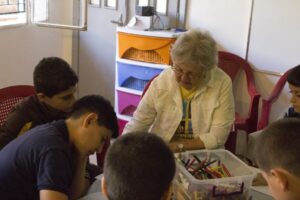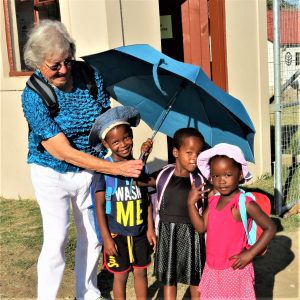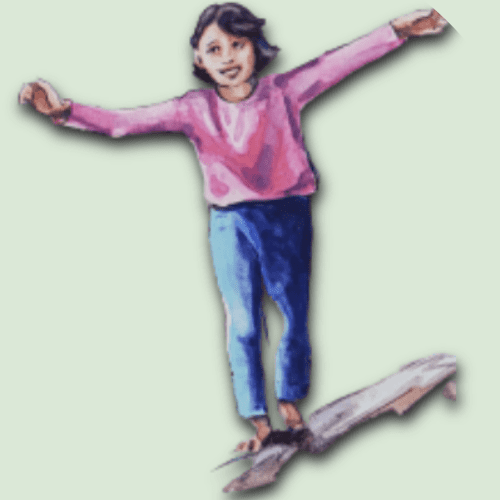As a former teacher I have often thought about the children who I taught and my responses to their behaviors as I designed ways to help them learn. From the child who I learned years later thought I was the prettiest teacher he had ever had (I had never thought of myself as “pretty”!) to the always disruptive Head Start child who I saw later, soon after her graduation from Harvard and being hired in the television industry, to the 8 or 9 year old refugee girls in Jordan who loved coming to the Super Girls program because at last they had made friends, which had seemed impossible when they had first arrived in Amman.
Some of those encounters with children resulted in intentional behaviors on my part that supported the positive outcomes. But there were others that occurred with positive experiences for children through no actions from me. And there were others that I ignored because I didn’t know what to do.
 I didn’t know.
I didn’t know.
And now as I reflect back on those times, I realize that my intuition, those times that I just talked to children, ask about their health or just listened to what they said could have been what was needed at the time. But I didn’t know my caring about the child or what had happened to her/him was that important to the child’s social and emotional development, which then supported their progress academically.
I didn’t know!
 In my 60 some years of working directly with children or with children’s programs in the US, Canada, Republic of Moldova, the Philippines, South Africa, Palestine, Jordan I have worked with individuals or groups of 9 refugee cultural groups. Now I know that those were all important learning experiences for me. Working with non-refugee programs gave me new understandings, also. One program serving children whose parents had gone away leaving them with grandparents, neighbors, friends, or siblings provided me with new information as did working with children whose parents or grandparents survived apartheid in South Africa. Many of those children may well have inherited intergenerational trauma as a result of that horrific time. And yes, all of these experiences have given me new and important insights.
In my 60 some years of working directly with children or with children’s programs in the US, Canada, Republic of Moldova, the Philippines, South Africa, Palestine, Jordan I have worked with individuals or groups of 9 refugee cultural groups. Now I know that those were all important learning experiences for me. Working with non-refugee programs gave me new understandings, also. One program serving children whose parents had gone away leaving them with grandparents, neighbors, friends, or siblings provided me with new information as did working with children whose parents or grandparents survived apartheid in South Africa. Many of those children may well have inherited intergenerational trauma as a result of that horrific time. And yes, all of these experiences have given me new and important insights.
So, I learned.
I have learned that trauma of any kind can greatly affect children by their being susceptible to major health issues over their lifetime – possibly reducing their life span by many years – as well as suffering major negative results on success in school.
But all is not lost!
If we (as a society) can work with trauma experienced children (especially before the age of 11 or so) we can help mitigate those devastating effects and give children a better chance of living healthy, productive, and creative lives.
I also learned that there is a difference between refugees who have experienced trauma as a result of war, violence, and forced dislocation and others whose trauma was a result of other traumatic experiences. The trauma experienced by refugees comes in 4 phases: pre-migration, migration, post migration, and immigration. All of which are multi-faceted and can be extremely dangerous.
Even though all traumatic experiences can be devastating to children I have chosen to work with refugees and refugee programs in the US as well as worldwide. Not only are there increasing numbers of refugees throughout the world but there are not enough programs focusing on helping children be ready to learn. Most of the programming for refugee kids is focused on teaching English, maths, science, or maybe participating in artwork. But are the children ready to learn? Are they able to cope with their past and still deal with their present or think of a future? Is there more that we could do? I think there is!
The intent of this website is to help adults working with young refugee children know how to recognize behaviors that might have come from traumatic experiences, give ideas for responses that could help those children in their development, and to help adults working with them develop strategies that would be situation specific and meet the needs of the kids with whom they are currently working in their own locations. Others working with non-refugee children may find this website useful. If that’s the case…. good!
Mine are ideas – but with those, other print and/or visual resources, thoughts from readers, and input from special consultants – all included on this site, I hope I can help adults help refugee kids be ready to learn and thrive!
Welcome
